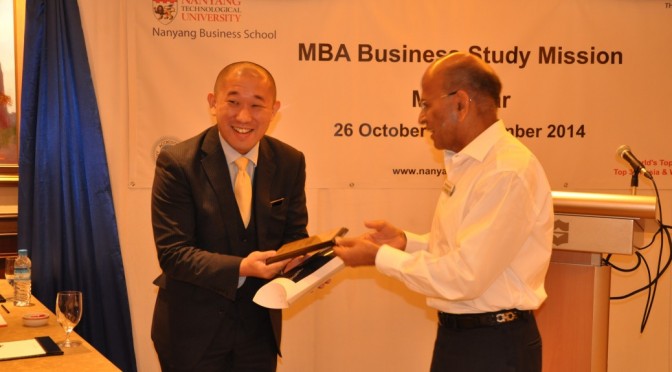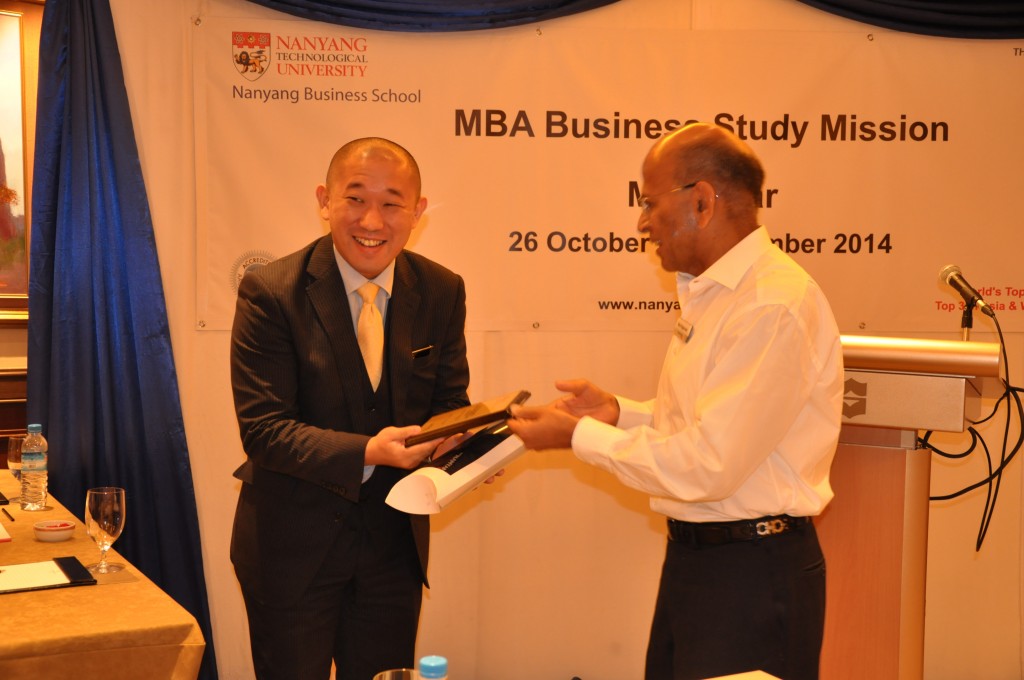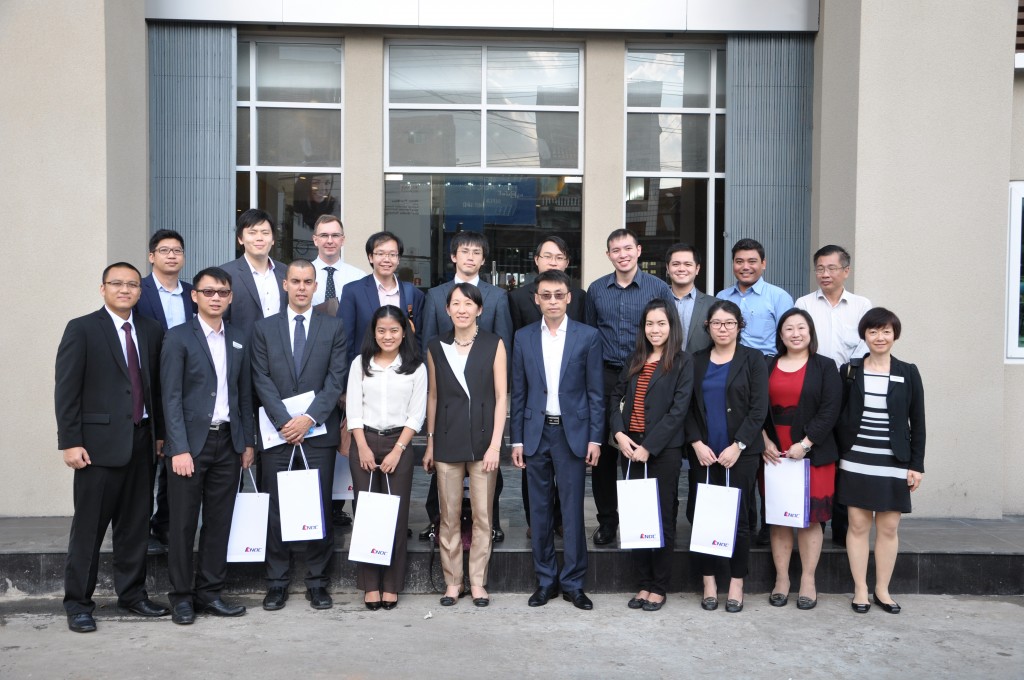Submitted by Raymond Rueda, Student Exco VP Career Development
Myanmar, compared to its Asian counterparts, has been lagging behind for decades in terms of socio-economic and political stability but thanks to U Thein Sein’s rise to presidency in 2011, it has now opened its doors to the global market, bringing in investors from various industries. Multinational companies see its huge potential—it is strategically located between Asian countries with huge populations—India and China—and is next to some developing Southeast Asian nations as well such as Thailand.
Because of these factors, the Nanyang Business School has chosen Myanmar for the second time as a destination for its students’ Business Study Mission (BSM), which was scheduled last October 25 to November 1. Now on its second year, the redesigned MBA program requires participants to go on a BSM either in Singapore or overseas. This year, 11 full-time students, 3 part-time students, and 1 EMBA participant joined the Myanmar group, which visited both local and multinational companies with offices in Yangon.
A trip abroad, however, would not be complete without sight-seeing so the BSM also had its fun side. During the first two days, we visited popular tourist spots in Yangon such as the Inle Lake, Botataung Pagoda, the Rangoon War Cemetery, the Shwedagon Pagoda, and Bogyoke Market. We also tried out local Burmese dishes in popular restaurants in the city and found them uniquely delicious.
After a weekend of touring the city came the more serious part of the trip—the company visits. Companies that the group got the chance to interact with include Chevrolet, Consumer Goods Myanmar Limited, Tokyo Stock Exchange, Samsung, Coca-Cola Pinya Beverages, Ooredoo, Kia Motors, Schneider Electric, CNQC, and Petronas. Aside from the private sector, officials from the government and non-profit institutions also gave insightful presentations about the current challenges, opportunities, and programs being promoted in Myanmar.
Seeing Myanmar suffering from poverty and corruption is quite saddening especially when one learns that it used to be the the second wealthiest in the region during the British occupation. Nevertheless, it is slowly making progress especially as it gains support from more powerful countries such as the US and Japan. All of us saw how promising Myanmar could be and we hope that one day, we will see it as competitive as or even more developed than its neighboring countries in the region.
To Prof. Ravi Agarwal, Prof. Chung Lai Hong, Ms. Lindsay Tan of the MBA Office, and everyone else who made the Myanmar BSM possible, chezu tinbade!
For more information about Nanyang Business School click here.



